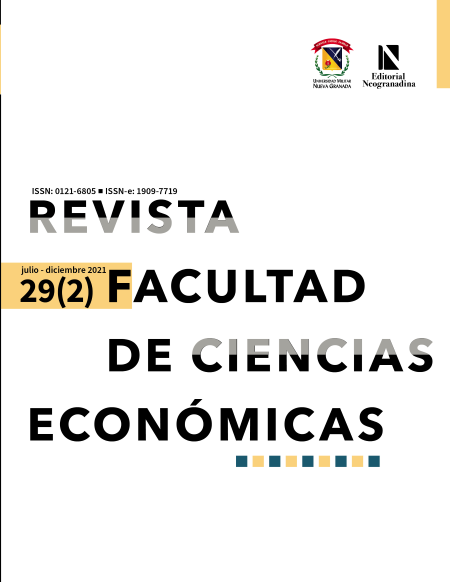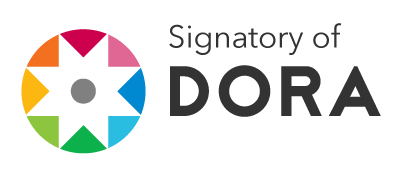Financial Decisions in the Light of Behavioral Economy
a Comparative Study of Students of Undergraduate Programs in Economy and Administration at a Federal Brazilian University
Abstract
In this article, the seminal study of Kahneman and Tversky (1979) called “prospective theory” is being replicated with the objective of understanding how the students who are finishing their undergraduate studies in Economy and Administration at a federal Brazilian university make financial decisions under uncertain and risk-taking conditions. Behavioral finances are a recent area of finances based on prospective theory, whose objective is to explain “irrational” decisions from the investors caused by emotional factors that modern financial theory sometimes is not able to solve. Through a field research, a 27-question survey was evaluated to assess decision making under different conditions. The analysis of the results was carried out by comparing the results from the current survey with the seminal survey. The results confirm the existence of the effects proposed in the prospective theory, as well as the interference of cognitive biases. It was also concluded that the students at the end of the courses make biased decisions independently from having a higher level of education.
Downloads
References
Bernoulli, D. (1954). Exposition of a new theory on the measurement of risk. Econometrica, 22(1), 23-36. https://doi.org/10.2307/1909829
Bertoncini, C., Brito, A., Leme, E., Silva, I., Silva, T. F. D. e Perri, R. A. (2013). Processo decisório: a tomada de decisão. Revista FAEF, 5(3), 8-34. http://faef.revista.inf.br/imagens_arquivos/arquivos_destaque/QjxDDqGcS5r3dHL_2013-5-3-12-8-34.pdf
Brighenti, J. e Da Silva, M. Z. (2016). Percepção da incerteza do ambiente e gestão de risco: um estudo em organizações prestadoras de serviço de transporte rodoviário de cargas. Revista Base (Administração e Contabilidade) da Unisinos, 13(3), 200-215. https://www.redalyc.org/pdf/3372/337248025003.pdf
https://doi.org/10.4013/base.2016.133.02
Cardoso, R. L., Mendonça, O. R., Oyadomari, J. C. e Correio, A. C. A. (2010). A ilusão monetária e a informação contábil e financeira. Revista Universo Contábil, 6(2), 47-60. https://www.redalyc.org/pdf/1170/117015183004.pdf
https://doi.org/10.4270/ruc.2010212
Cortés, R. L. G. C, Mejía, A. G., Vargas, V. P. e Paredones, R. M. M. (2020). Influencia del nivel de avance educativo y el género en la toma de decisiones financieras: una aproximación desde la Prospect Theory. Revista Finanzas y Política Económica, 12(1), 19-54. http://dx.doi.org/10.14718/revfinanzpolitecon.v12.n1.2020.3092
De Araújo, D. R. e Silva, C. A. T. (2007). Aversão à perda nas decisões de risco. Revista de Educação e Pesquisa em Contabilidade (REPeC), 1(3), 45-62. https://repositorio.unb.br/bitstream/10482/6103/1/ARTIGO_AversaoPerdasDecisoes.pdf
https://doi.org/10.17524/repec.v1i3.15
Freitas, H. e Kladis, C. (1995). O processo decisório: modelos, dificuldades e soluções. Revista Decidir, ano II(8), 49-69. http://gianti.ea.ufrgs.br/files/artigos/1995/1995_028_rev_decidir.pdf
Friedman, M. e Savage, L. J. (1948). The utility analysis of choices involving risk. Journal of political Economy, 56(4), 279-304. https://www.journals.uchicago.edu/doi/10.1086/256692
https://doi.org/10.1086/256692
Gava, A. M. e Vieira, K. M. (2006). Tomada de decisão em ambiente de risco: uma avaliação sob a ótica comportamental. REAd - Revista Eletrônica de Administração, 12(1). https://www.seer.ufrgs.br/read/article/view/40374
Hameleers, M. (2021). Prospect theory in times of a pandemic: The effects of gain versus loss framing on risky choices and emotional responses during the 2020 Coronavirus outbreak-evidence from the us and the Netherlands. Mass Communication and Society, 24(4), 479-499. https://doi.org/10.1080/15205436.2020.1870144
Johnson, D. D. e Tierney, D. (2019). Bad world: The negativity bias in international politics. International Security, 43(3), 96-140. https://doi.org/10.1162/isec_a_00336
Kahneman, D. e Tversky, A. (1979). Prospect theory: An analysis of decision under risk. Econometrica, 47(2), 263-291. http://hassler-j.iies.su.se/COURSES/NewPrefs/Papers/KahnemanTversky%20Ec%2079.pdf
https://doi.org/10.2307/1914185
Kahneman, D. (2012). Rápido e devagar: duas formas de pensar. Objetiva.
Kimura, H., Basso, L. F. C. e Krauter, E. (2006). Paradoxos em finanças: teoria moderna versus finanças comportamentais. Revista de Administração de Empresas, 46(1), 41-58. http://dx.doi.org/10.1590/S0034-75902006000100005
Klapper, L., Lusardi, A. e Van-Oudheusden, P. (2014). Literacy around the world: Insights from the standard & Poor's Ratings Services Global Financial Literacy Survey. Califórnia: Standard & Poor Serviços. https://gflec.org/wp-content/uploads/2015/11/3313-Finlit_Report_FINAL-5.11.16.pdf?x75132
Kroth, G. L. e Lobler, M. L. (2019). Teoria do foco regulatório: um estudo bibliométrico do estado atual da produção brasileira e da relação com a Teoria dos Prospectos. ID on line Revista de Psicologia, 13(44), 508-524. https://idonline.emnuvens.com.br/id/article/view/1634
https://doi.org/10.14295/idonline.v13i44.1634
Lakatos, E. M. e Marconi, M. A. (2003). Fundamentos de metodologia científica. (5ª ed.). Atlas.
Lima, M. V. (2003). Um estudo sobre finanças comportamentais. RAE eletrônica, 2(1). https://doi.org/10.1590/S1676-56482003000100004
Moritz, G. O. e Pereira, M. F. (2006). Processo decisório. Departamento Ciências da Administração.
Neyse, L., Vieider, F. M., Ring, P., Probst, C., Kaernbach, C., Van-Eimeren, T. e Schmidt, U. (2020). Risk attitudes and digit ratio (2D: 4D): Evidence from prospect theory. Journal of Risk and Uncertainty, 60(1), 29-51. https://link.springer.com/article/10.1007%2Fs11166-020-09321-w
https://doi.org/10.1007/s11166-020-09321-w
Oliveira, R. L. e Krauter, E. (2015). Teoria do prospecto: como as finanças comportamentais podem explicar a tomada de decisão. Revista Pretexto, 16(3), 106-121. https://dialnet.unirioja.es/servlet/articulo?codigo=5198862
Peci, A. e Sobral, F. (2008). Administração: teoria e prática no contexto brasileiro. Pearson Prentice Hall.
Perez, M. M. e Martins, R. C. S. (2005). Decifrando a geração de valor ao acionista. Anais do XXIX Anual da Associação Nacional dos Programas de Pós-Graduação em Administração, Anpad, 29. http://www.anpad.org.br/diversos/down_zips/9/enanpad2005-ficd-2817.pdf
Roesch, S. M. A. (1999). Projetos de estágio e de pesquisa em administração: guias para estágios, trabalhos de conclusão, dissertações e estudos de casos. (2ª ed.). Atlas.
Rosales-Pérez, A. M., Fernández-Gámez, M. A., Torroba-Díaz, M. e Molina-Gómez, J. (2021). A study of the emotional intelligence and personality traits of university finance students. Education Sciences, 11(1), 25. https://www.mdpi.com/2227-7102/11/1/25
https://doi.org/10.3390/educsci11010025
Ruggeri, K., Alí, S., Berge, M. L., Bertoldo, G., Bjorndal, L. D., Cortijos-Bernabeu, A., ... e Gibson, S. P. (2020). Replicating patterns of prospect theory for decision under risk. Nature Human Behaviour, 4, 622-633.https://www.nature.com/articles/s41562-020-0886-x
https://doi.org/10.1038/s41562-020-0886-x
Silva, R. F. M., Lagioia, U. C. T., Maciel, C. V. e Rodrigues, R. N. (2009). Finanças Comportamentais: um estudo comparativo utilizando a teoria dos prospectos com os alunos de graduação do curso de ciências contábeis. Revista Brasileira de Gestão de Negócios, 11(33), 383-403. https://dx.doi.org/10.7819/rbgn.v11i33.432
Vergara, S. C. (2009). Métodos de coleta de dados no campo. Atlas.
Vergara, S. C. (2007). Projetos e relatórios de pesquisa em administração. (8ª ed.). Atlas.
Walter, S. A., Freha, J. R. e Silva, W. V. (2010). Análise do comportamento e da percepção do investidor em relação ao risco sob a ótica da teoria de finanças comportamentais. RAUSP Management Journal, 45(2), 172-187. https://www.sciencedirect.com/science/article/pii/S0080210716305362
https://doi.org/10.1016/S0080-2107(16)30536-2
Yoshinaga, C. E. e Ramalho, T. B. (2014). Finanças Comportamentais no Brasil: uma aplicação da teoria da perspectiva em potenciais investidores. Revista Brasileira de Gestão de Negócios, 16(53), 594-615. https://www.scielo.br/j/rbgn/a/DpWgqKYDSdMdqYM7w9gG9GB/abstract/?lang=pt











